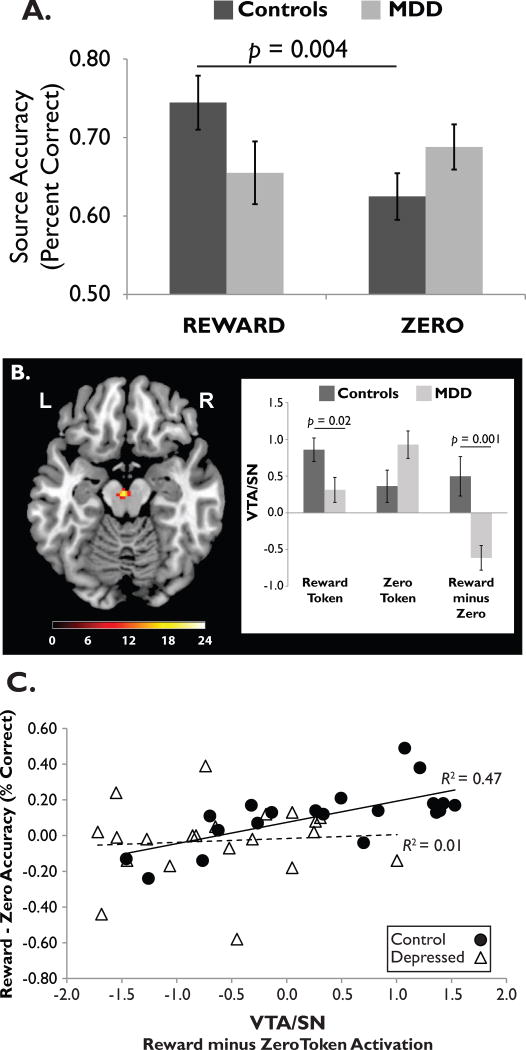Figure 4. Association between blunted reward responses and poor memory for rewarded stimuli in depression.
(A) Healthy controls showed a source memory advantage for objects paired with reward vs. non-reward (“zero”) tokens, but adults with Major Depressive Disorder (MDD) did not. (B) At encoding, reward tokens elicited a stronger VTA/SN response in healthy controls than in depressed adults. (C) In controls, but not depressed adults, the size of the reward (vs. zero) memory advantage was positively correlated with the reward (vs. zero) activation difference scores in the VTA/SN. Image adapted from [54], with permission.

